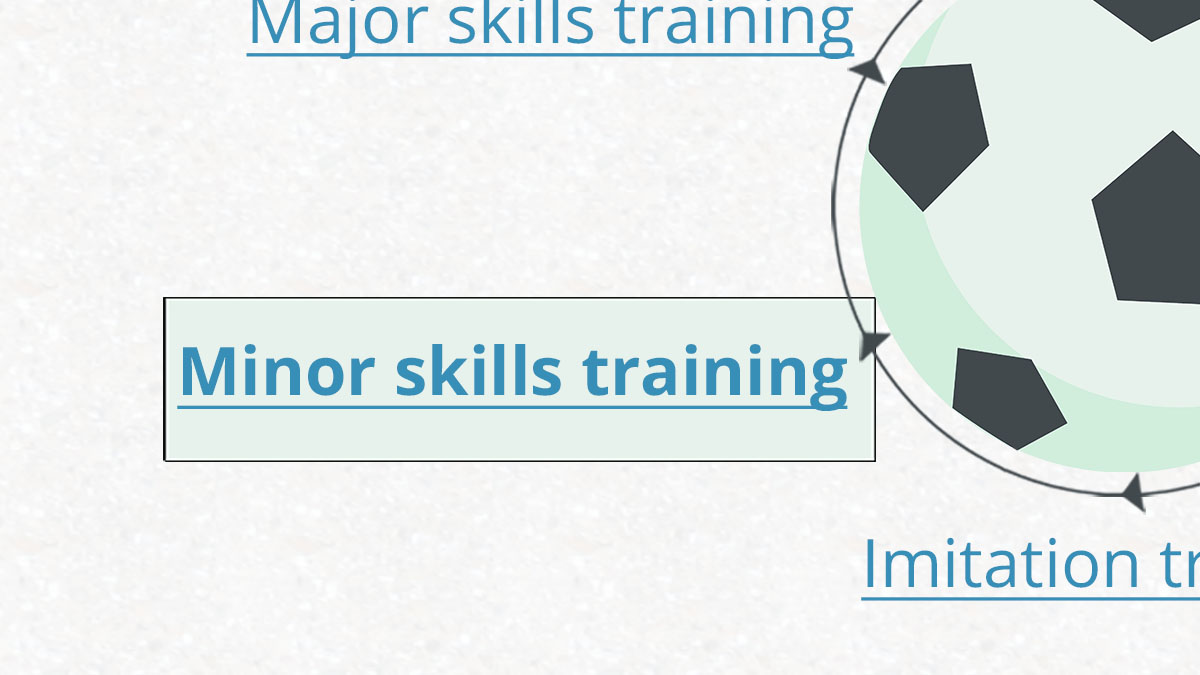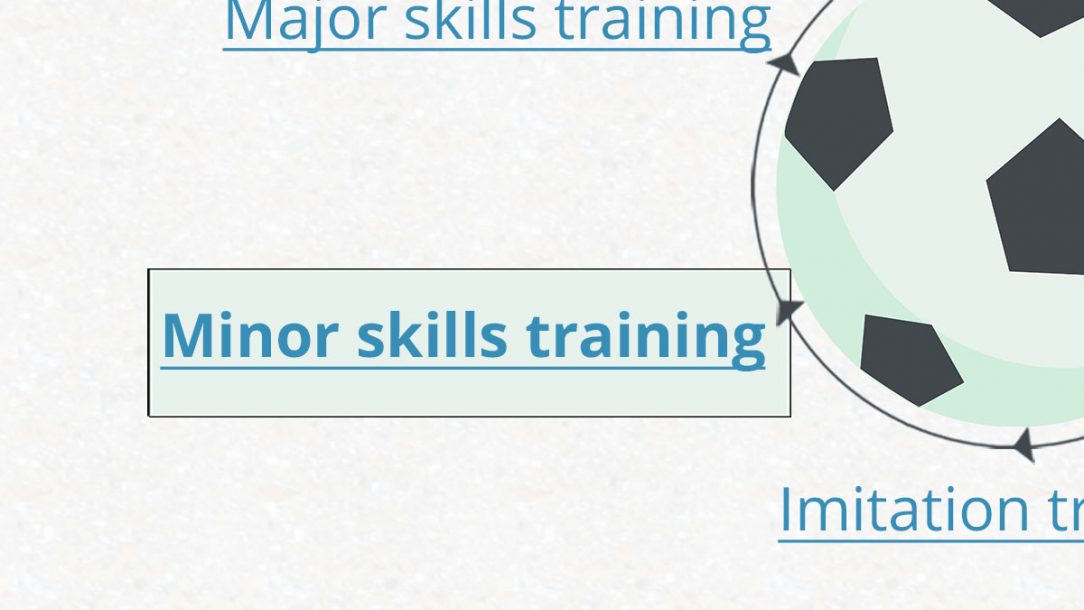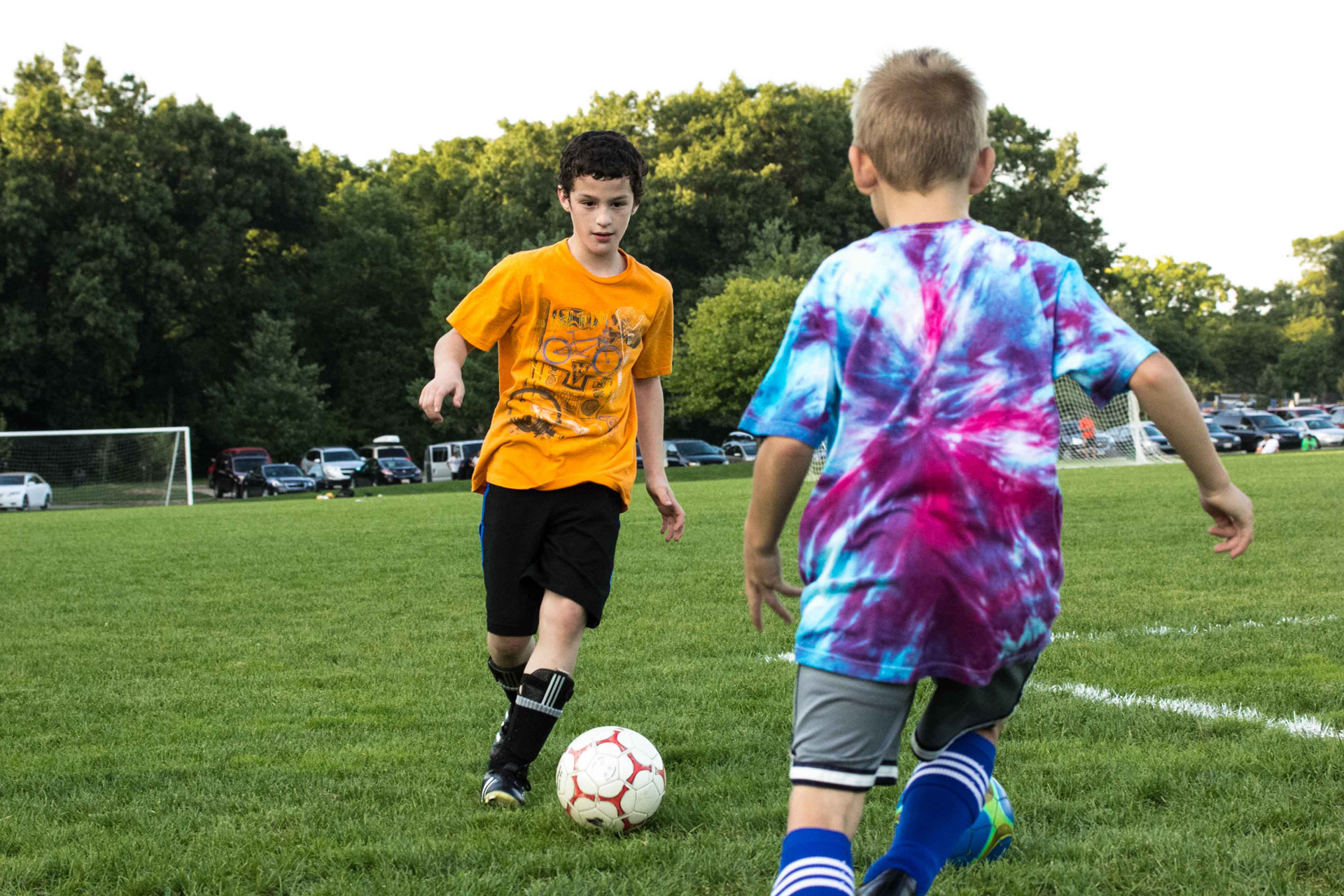
Illustration: Giske Defending.
Investing time and effort in minor-skills training will be essential to taking your game to the next level. This training type is ideal if you are struggling with a given movement or combination of movements. It is also advantageous if you want to figure out the causes of the mistakes you commonly make.
This particular type of training can be very useful if you have an area of weakness; however, it can also be employed to enhance your existing strengths. For instance, you may be very good at dribbling. During minor-skills training, you can practice dribbling under high-pressure situations by giving yourself less time and space. Making tasks more difficult will prepare you for performing at a higher level; this is what separates amateur players from professional players.
Minor-skills training is often useful when you need to connect different skills. However, before you do this, you need to understand what skills need to be connected, and why. For example, you may have great footwork and tackling skills yet find it difficult to combine them. Are you struggling to tackle when concentrating on your footwork? Why?
This training type is ideal if you are struggling with a given movement or combination of movements.
For example, you may have great footwork and tackling skills yet find it difficult to combine them.
As a further example, you may perform very well in a 1v1 situation against a right facing attacker but struggle during 1v1 encounters with “wrong facing,” attackers, which actually should be much easier. Ask yourself why this is the case and work on the minor skills you need to rectify the situation.
Sometimes, you may need to test out different variations to develop a useful training exercise. The training can be organised in different ways and resistance may vary to different degrees.
Let’s look at an example from my own career.
Ask yourself why this is the case and work on the minor skills you need to rectify the situation.
The best example of the way in which investing in minor-skills training transformed my own performance occurred when I was playing for Nuremberg at the age of 26.
On the last training session before Christmas, the Nuremberg team participated in a fun and relaxed five-a-side game. However, the floor of the sports hall was slippery, and I found it difficult to control the ball. The ball fell beyond my reach a few times as I was in the process of dribbling and, on one occasion, Stefan Reuter was laying in wait for me.
During this particular training practice, everything suddenly became clear. I finally recognised that, whether I was playing on grass or indoors, my dribbling skills were not quite up to par. The slippy floor has been enough to throw my game off course.
During this particular training practice, everything suddenly became clear.
I began to study and analyse the best dribbling player in the Bundesliga to learn from him. I watched video after video of him in action and assessed the main qualities of his performance that set him apart from the rest. I soon realised that maintaining control of the ball while dribbling involves the following:
- Keeping the ball as close to the body as possible. This allows you to use your ankle joint more efficiently.
- Letting the ball roll of its own accord where possible. Avoid the temptation to touch the ball at every step – this allows you to keep the ball closer to the body.
- Where possible and necessary, slanting your body position such that you shield the ball (put your body between your opponent and the ball).
I began to study and analyse the best dribbling player in the Bundesliga to learn from him.
From a technical perspective, I focused on these minor skills in the forthcoming weeks and, because the tasks were so simple, I could readily integrate them into bigger training exercises and gameplay sequences.
I made great progress, and it wasn’t long until I was able to transfer the minor skills I had perfected to the bigger skill of dribbling during match situations.
Essentially, through breaking dribbling down into minor skills and then focusing on each of these skills in turn, I transformed a weakness into a major strength; and it felt great!
I made great progress, and it wasn’t long until I was able to transfer the minor skills to the match situations.


